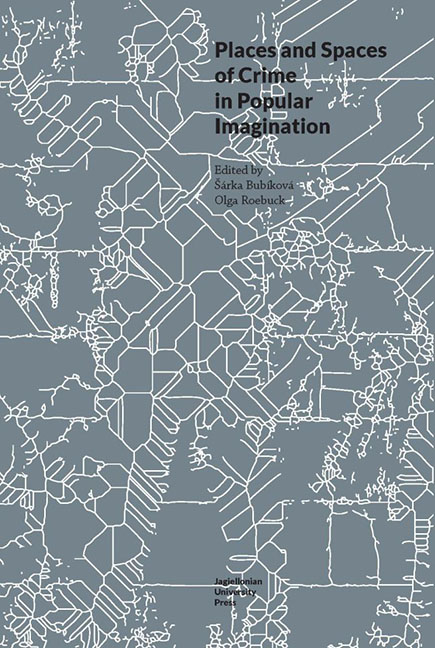Book contents
- Frontmatter
- Contents
- Introduction
- London in the Cormoran Strike Series
- London as the Murderer’s Playground in Sharon Bolton’s Now You See Me
- Through the Looking-Glass: Space and Place in Simon Mawer’s The Girl Who Fell from the Sky
- Murderous Academics: Territoriality in Cynthia Kuhn’s Academic Mysteries
- Suburbia and the Subversion of Its Values in 1950s Crime Comics
- Wilderness in Dana Stabenow’s and Nevada Barr’s Crime Fiction Series
- “I Am the Wave that Sinks into the Ocean”: The Sense of Place in The Affair
- Index
- Notes on the Contributors
“I Am the Wave that Sinks into the Ocean”: The Sense of Place in The Affair
Published online by Cambridge University Press: 13 October 2023
- Frontmatter
- Contents
- Introduction
- London in the Cormoran Strike Series
- London as the Murderer’s Playground in Sharon Bolton’s Now You See Me
- Through the Looking-Glass: Space and Place in Simon Mawer’s The Girl Who Fell from the Sky
- Murderous Academics: Territoriality in Cynthia Kuhn’s Academic Mysteries
- Suburbia and the Subversion of Its Values in 1950s Crime Comics
- Wilderness in Dana Stabenow’s and Nevada Barr’s Crime Fiction Series
- “I Am the Wave that Sinks into the Ocean”: The Sense of Place in The Affair
- Index
- Notes on the Contributors
Summary
“Place… it is forever astir, alive, changing, reflecting, like the mind of man itself.”
(Eudora Welty)Introduction
The intellectual debate that came from France in the late 1960s and early 1970s, and whose trajectory can be identified in the works of Gaston Bachelard, Michel Foucault, Henri Lefebvre, Michel de Certeau, and later synthesized in the work of Edward W. Soja, initiated the new thinking about the relationship between space, the production of meaning, social relations, and identity. Foucault described the shift in the paradigm as “the epoch of simultaneity” – of juxtaposition (Foucault 1984 [1967]: 1). He used in his exemplification a structuralist set of relations that function on, what he called the “operating table” (Foucault 1973 [1966]), juxtaposed, set off against one another, open to implications about each other. It can be observed today that such analogy anticipated the contemporary cultural condition where the production of knowledge is complicated by the possibilities of simulation, replication, and simultaneous coexistence of multiple identities. The visual rather than textual world has erased the boundaries for the identification of factual values the presented material may have. We are still left with the operating table upon which the individual items are displayed, where they can be discerned in their opposition and incongruity; when appropriated and absorbed as a part of what we call our identity or existence, however, the underlying epistemic assumption positions truth beyond the limits of shared epistemological standards. It can be argued, however, that what may serve in social and political life as a means of manipulation, can still remain a creative mechanism in the arts to disclose the complexity of the contemporary world.
TV Culture – Self-fashioning Space
One of the most important cultural platforms for the production of meaning today is television. Being an important communication channel – its structure and content have changed significantly since the 1950s, when it originated. For a long time television was “dominated by commercial imperatives, and hostile to artistic achievement,” however, since the 1990s viewers can choose from a growing range of private networks that provide them with a content often referred to as quality TV (Hilmes et al. 2014: 26).
- Type
- Chapter
- Information
- Places and Spaces of Crime in Popular Imagination , pp. 109 - 122Publisher: Jagiellonian University PressPrint publication year: 2021



